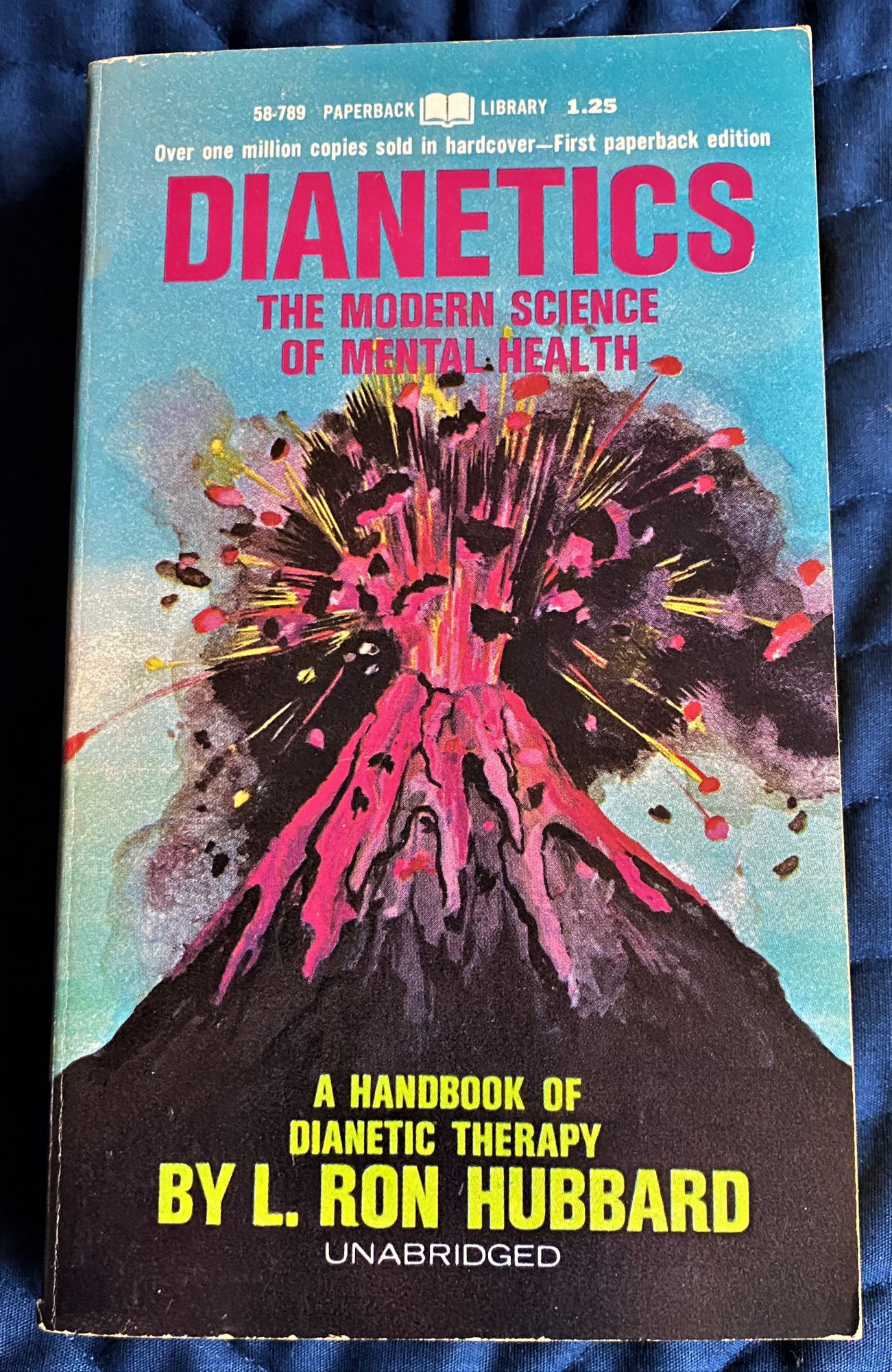The Single Strategy To Use For Dianetics
Wiki Article
The Basic Principles Of Dianetics
Table of ContentsDianetics Things To Know Before You BuyHow Dianetics can Save You Time, Stress, and Money.See This Report about DianeticsNot known Details About Dianetics
I couldn't ever before not wish to get anything that enters your mind for you- if it was otherwise, I would not be sitting here with you, doing this. I not just can never have a problem, or otherwise intend to hear something that enters your mind for you, however I'm totally eager to recognize every idea, every idea, every picture or sensation that emerges or manifests for you- don't ever believe or else, and if somehow you do, please simply let me know! In some cases, you might have an idea, and picture, idea or case appear that does not appear to respond to the question, or connect to it, yet nevertheless, constantly do inform me regarding it, and as we proceed, the importance will certainly emerge for you.This is integral in the basis of handling, and the topic of this conversation: the basic duties of the counselor and the client: The standard function of the counselor is, in contrast to "standard training", not to regulate, which means to impose and/or inhibit, yet to rather work from the basis of EMPOWERING THE CUSTOMER.

An Unbiased View of Dianetics
John Mcmasters expressed this standard reality incredibly well in among his lectures on Power handling, where he describes just how he was asked what this "unique knack" was that he had for providing such terrific sessions; he had to think of that for a minute, and found that it was what he had not been doing, along with what he was doing: he wasn't examining, evaluating, computing, or actually, producing any ideas, not to mention spoken expressions, after offering the command and while waiting on the computer to finish their response to their contentment; he was, merely and just, existing with the PC, and entirely interested.The role of the therapist, demonstrated; that was his "special knack". I have had my very own experience which educated me this well, very early in the game. In 1982, having lately finished my training and internship on New Period Dianetics, I was running this on a PC, and there was a factor in the session where (being a little bit wet behind the ears not yet having numerous hours under my belt as a professional auditor) the computer seemed to be "taking as well lengthy" to reveal anything verbally after I gave him a command.
This secret ended up being the most important payment that John ever made to the topic of therapy or auditing (Dianetics). In my humble viewpoint, it is the best contribution that any individual has ever made to these subjectsthe application is entirely non-judgemental, non-evaluative, and devoid of any kind of pointer, guidance or opinion.no preconditioned agenda for people, or 'levels' that they have to do
In Scientology we prided ourselves on not assessing for people. All that actually implied was that the auditor did not Vocally evaluate for the Computer in session.
Little Known Facts About Dianetics.

Anybody who had ever seen John audit can not help but notice a special quality in his auditing."The customer's basic site link function is to be there with the objective of moving in the direction of their spiritual goals, and to openly and completely express and experience whatever manifests for them in addressing the inquiries and implementing the directions in the handling.
This is something to procedure as required. Also, people frequently have prior experience and/or indoctrination in auditing/processing which, in some means, and to some degrees, actually deceives them into mindsets, ideas and behavior patterns that stop the complete awareness of these functions, and so they will certainly have a tendency to prevent the expressing of what comes to mind, as in the instances provided over - Dianetics. * The very first, and maybe primary examples of mis-indoctrination causing much less than entirely smooth and efficient sessions, can be discovered in specific aspects of the training routines, or "TR's":"TR's" are frequently a person's first, or at least early, experience in Scientology, and while I will take place to describe what I view as the defects in concept and pop over here method, nonetheless, tend click here to read to be substantially therapeutic, done as they are given (Hubbard urges that "TR's are not refining, they are educating", but factually, they are both processing AND training)
Alan Walter made similar observations, and improved these with his "Visibility Processes". There is no "flunking", and no denial of the fact of this being handling. The emphasis, as it must be, is on experiencing the various other individual's existence. All the manifestations which get a "fail" in doing "TR-0" are just the being's efforts to stand up to the other person's existence, and instead of being bothered and badgered with "Flunk", which enforces "failure!" on the being, one just needs to be motivated to "stick their feet in the water a little deeper", to increasingly refurbish their ability and willingness to totally share and experience "being below", or "presence", with others.
Unknown Facts About Dianetics

Report this wiki page